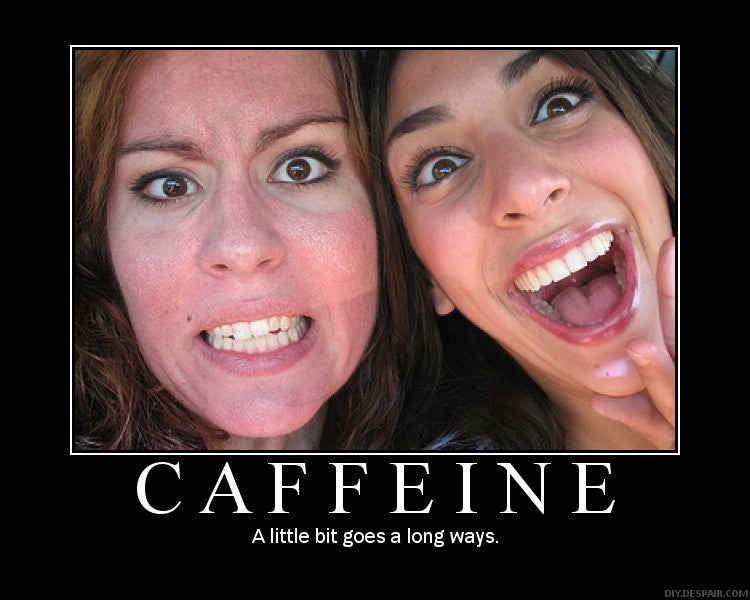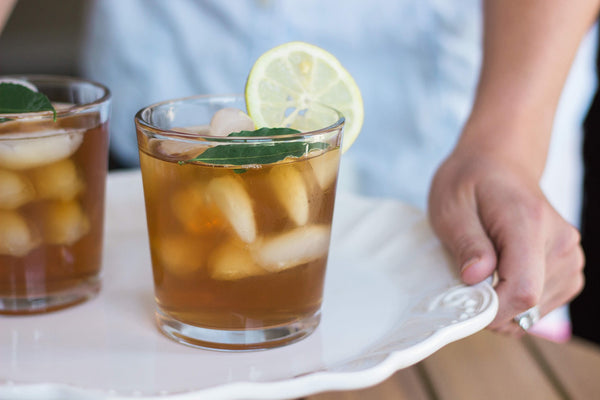
If you ask any tea expert about the amount of caffeine a cup of tea has, you will probably get a lot of different answers. Some say there is very little and some say there is quite a bit. The truth is the amount of caffeine depends on a few key factors. Because of this, I created a quick rundown on some of the facts and myths regarding caffeine and tea.
The “Common” guidelines
The most accepted guidelines in the industry are that black tea has half the amount of caffeine as coffee. As the tea gets lighter in color the caffeine is reduced by half. The following is a summary:
- Coffee – 100mg
- Black tea – 50mg
- Oolong Tea – 25mg
- Green Tea – 15 mg
- White Tea – 10mg
But there is controversy over these numbers
The simple problem behind these guidelines is that caffeine is extremely difficult to measure. There are many variables, such as leaf size, tea plant age and plant species, that can play a large role.
Because of this difficulty there have been a few different studies done on this exact topic. The results? Well, they are inconclusive. Some say that the common guidelines are correct. Others disagree.
Some think that all tea has the same amount of caffeine
The “new school” of thinking says that all tea leaves have the same amount of caffeine in them. The main differences lie with the type of plant. The species that grows in India has more caffeine than the species in China.
Another factor that can play a role is the size and age of the leaf. The first flush teas with smaller leaves have more caffeine in them.
The most important thing is time
That is the litmus test for me. I know that when I cup 5 teas in a row of black tea I am much more caffeinated than when I cup 5 green teas. The main reason for this is the length of time the leaves steep for.
The longer a tea is steeped for, the more caffeine is released. This is one thing everyone agrees with. Because green teas are steeped for half the time as black teas, they have about half the caffeine.
So after all this jabbering, the old rules are correct
As a basic guide, I would say they are generally correct. If you want to get more technical, then here is a new guide that is more accurate:
- 5 minute Steep – 50mg caffeine
- 4 minute steep – 40 mg caffeine
- 3 minute steep – 30mg caffeine
- 2 minute steep - 20mg caffeine
- 1 minute steep – 10 mg caffeine
Summary
So there you have it. The most thorough explanation of caffeine you will ever need. All you need to remember is the less time you steep your tea, the less caffeine it will have. Just be sure to avoid steeping your black tea for 1 minute or you will have quite a watery brew.
Photo: www.flickr.com/photos/elizabethrs/489503503/
4 Responses
Quora
How much caffeine would I consume if I sipped green,white, or black tea all day versus having two cups of coffee?…
Jim Gordon is correct. A lot of the conventional wisdom when it comes to tea and caffeine is incorrect. Well, sort of. In our research we have concluded that the amount of caffeine in tea is directly proportional to the amount of time the tea is steepe…
Robb
I have been told by several experts that most of the caffeine comes out of the leaf in the first 20 seconds. In fact if you want to decaffeinate a tea just soak for 30 seconds and brew a new cup.
Cointreau
Thanks for nice information.
I refered your writing to online cafe…
If you dont want to, let me know by e-mail.
Leave a comment
Comments will be approved before showing up.



Quora
January 21, 2016
How much caffeine does green tea contain?…
A lot of people now think that the amount of caffeine is linked to the time that tea is “steeped” for. Basically green tea has less caffeine because it “soaks” in the hot water for less time than black tea. Here is an article with some more details…